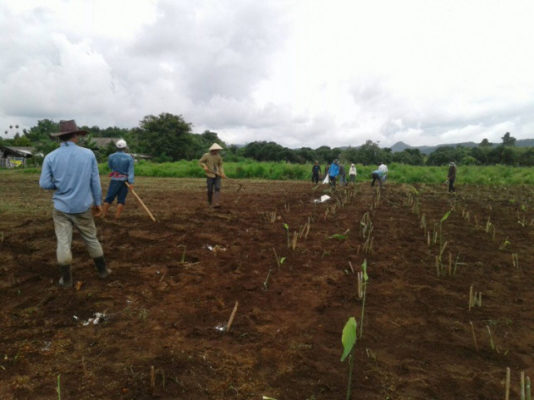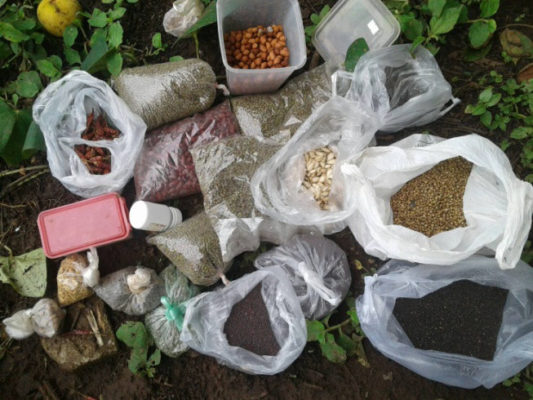 For many ex-prisoners, especially those who have been behind bars for many years, getting their lives back on track can be a huge challenge. Many have lost contact with their families, some have nowhere to go, and some want to be able to bring something to their family when they return home.
For many ex-prisoners, especially those who have been behind bars for many years, getting their lives back on track can be a huge challenge. Many have lost contact with their families, some have nowhere to go, and some want to be able to bring something to their family when they return home.
 Jesuit Foundation-Prison Ministry set up the Emmaus Center to offer newly-released prisoners a place to live and work while they adjust to life beyond the prison walls.
Jesuit Foundation-Prison Ministry set up the Emmaus Center to offer newly-released prisoners a place to live and work while they adjust to life beyond the prison walls.
“We can welcome and give accommodation for a time to ex-prisoners and help them slowly adjust from a life in prison to the free world, to find possibilities of how they can start their new life again after many years of imprisonment,” said Vilaiwan “Kep” Phokthavi, Jesuit Foundation-Prison Ministry Director.
The Emmaus Center is situated on a two-acre lot in Mae Tang District, Chiang Mai, and is focussed on organic farming. The main office building, Emmaus House, was completed two months ago, on May 29, and by next month, Kep hopes to have the house fully furnished and operational. There are plans to engage in handicraft and carpentry work, especially making small furniture and utensils that can be used in the house and farm. The team hopes to include carpentry in its skills training programme in the future.
Kep says that in addition to helping ex-prisoners reintegrate into society, the centre aims to be a place where Pope Francis’ encyclical on the environment is practised. The centre also follows the lead of the late Thai King Rama IX in fostering a self-sufficient economy for Thailand.
Last year, the centre welcomed one former prisoner, Mr Sun, who stayed for six months from July 2017 to January. During his stay, he learnt to plant peppers, vegetables and fruits, as well as how to make compost, organic fertilisers and chemical-free insecticides.
“We were happy during his time with us. Now he is back with his family and we wish him good luck,” said Kep.
 The centre’s staff grows peppers, bamboo, galangal (a local herb) and forest trees. They have started a nursery to cultivate young plants, and make their own compost from mixing food wastes, husks and straws with soil enriched by earthworms raised in the farm. They also have a chicken farm for egg production and have started beekeeping using honeycomb given by a friend.
The centre’s staff grows peppers, bamboo, galangal (a local herb) and forest trees. They have started a nursery to cultivate young plants, and make their own compost from mixing food wastes, husks and straws with soil enriched by earthworms raised in the farm. They also have a chicken farm for egg production and have started beekeeping using honeycomb given by a friend.
Mindful of Pope Francis’ description of modern society as a throwaway culture, they have adopted sustainable waste management practices. Waste is segregated, recycling is promoted, and it has a waste segregation facility near The Seven Fountains Spirituality Centre to collect food waste to turn into compost.
The staff is also learning more about organic farming.
“We seek knowledge and training from Maejo University, Thamturakit group, which is engaged in natural farming, and also from the internet,” said Kep, adding that they also reach out to local farmers, and wise men and women from the village who have indigenous knowledge.
Through the Emmaus Center, Kep and her team want to show that caring for the human person should not be separate from caring for the environment, that caring for former inmates can also be seen as caring for our common home.
Related story: From prison to farm and a fresh start in life

